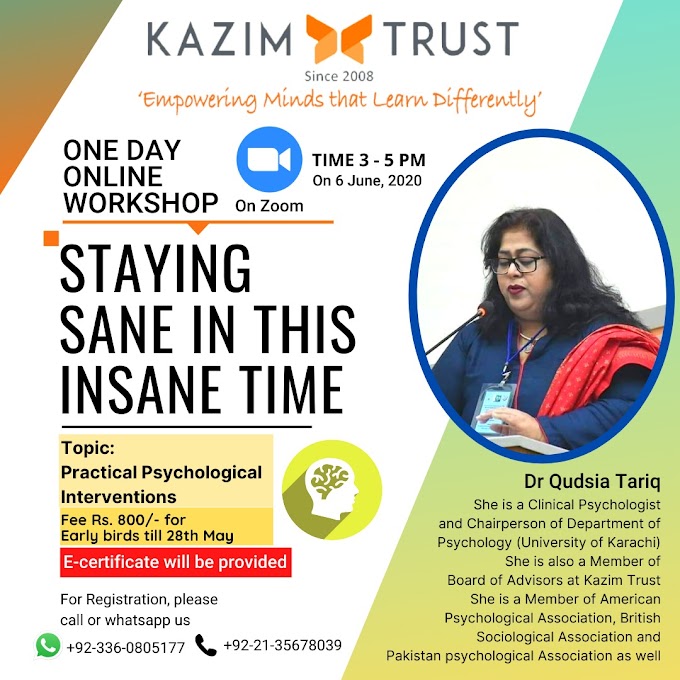Autism spectrum disorder (ASD) is a neurodevelopmental disorder that hinders communication and disturbs behaviour. However, autism can be ruled out at any age, it is supposed to be a ‘developmental disorder’ because symptoms generally appear in the initial two years of life. The symptoms can be mild to severe.
- Lack of communication
- Impairment of social interaction
- Self-talking
- Repetitive behaviour
- Symptoms that hurt the individual's capacity to work appropriately in school, work, and different everyday chores and activities.
Types of Autism
There are different types of autism, such as autistic disorder; it has more or less the same symptoms but are quite severe, Asperger’s syndrome; this show milder symptoms and people with this type are intelligent and can handle their everyday life activities but face same problem while communicating with people. Pervasive developmental disorder; they are in between, neither too severe nor very mild. All these now come under one umbrella, Autism Spectrum Disorder, but at Kazim Trust, we make sure that every individual is dealt according to the severity of the disorder.
Dyslexia
It is a disorder in which an individual faces difficulty with accurate word recognition and poor spellings. Dyslexia is a neurological condition which causes difficulty reading, writing and spelling words. Children facing this problem have difficulty organizing written and spoken language, what they read.
Dysgraphia
This is a disability in which one faces language-literacy difficulty. It mainly has to do with writing with hands. This disorder can be easily diagnosed and treated. Generally, they have poor or slow handwriting often messy and unorganized, have difficulty copying, and poor fine motor skills.
Dyscalculia
Most children during early school years have had problem-solving math sums. But if this is a problem that he faces only with numbers or and has low math test scores, yet does not have any issue in other subjects, he probably has a math learning disability called dyscalculia.
It's a brain-related issue that makes basic arithmetic difficult to learn. It may be an issue that runs in the family but scientists are not sure if this has anything to do with genes. Children with dyscalculia may find it difficult to: understand math word problems, learning simple math like addition, subtraction and multiplication, comprehending fractions, understand graph, charts, counting and managing money, remembering phone numbers, reading and telling time.
Learning specialists, educational psychologists, or neuropsychologists who specialize in treating and helping children with the above disorders are working persistently with dedication at Kazim Trust. They make a difference in the lives of children who have lost hope. They are all there to inspire and empower the young minds – educating them in the way the children learn, helping them meet the unique challenges, and making all the difference beyond imagination.




1 Comments
I'm super excited to tell the public that I and my Husband health have been permanently restore from HSV by Dr Agbomina . my husband and i had HSV for years but everyone told us that there was no cure to it and every doctor we contacted failed to cure us until I contacted Dr Agbomina , he recommended herbal medicine for my husband and I and we're both Negative now, this is the greatest testimony I have shared and i am so happy that we're normal now. You can contact Dr Agbomina via his WhatsApp +234(805)049-5479 for any other Disease of infection, You can reach him and get fast response from him on his email: dragbonherbalmedicine@gmail.com.
ReplyDelete